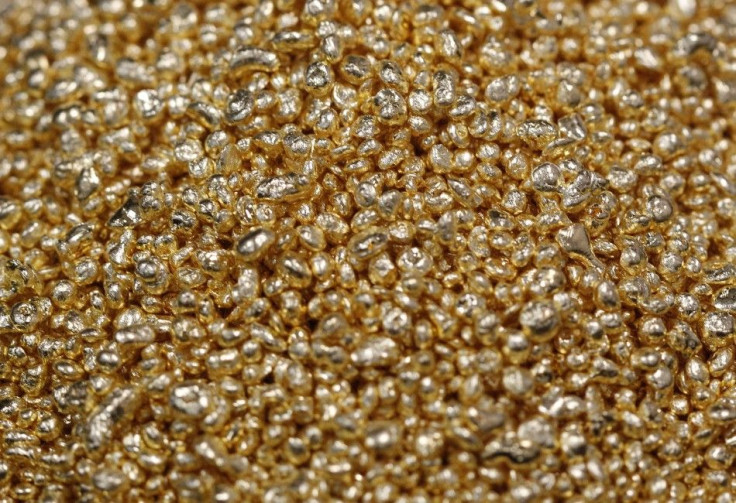Gold Eases Fractionally, Euro Sentiment Up

Gold eased on Wednesday as growing hopes of a resolution to the Eurozone debt crisis persuaded investors to shrug off a downgrade to Spain's credit rating and buy riskier assets such as equities.
European stocks and the euro rallied as investors grew more optimistic that policymakers would take major steps at a summit this weekend to solve the debt crisis.
Gold is set for a 2 percent rise in October, following September's near-11 percent decline, yet analysts say the price of the metal has become increasingly unpredictable, particularly as its usual inverse correlation to risk-related assets such as stocks has eroded, making it less likely to act as a safe-haven in times of market turmoil.
Spot gold was bid at $1,650.10 a troy ounce at 1353 GMT from $1,658.64 an ounce late in New York on Tuesday, having fallen back from an earlier session high at $1,664.89.
Gold does fluctuate from one theme to another. It seems like a lot of investors have left it alone for the time being because of the volatility in September and as such, do not look toward it for any added safety because there is no real need for that right now, said Saxo Bank manager Ole Hansen.
Stocks are up, European leaders are in the race of their lives right now to secure a deal at the weekend and with all that is going on, gold has been left on its own and technical trading is beginning to take over, he said,
It's lost its momentum and on that basis, there is a fear creeping in that we will need to see a deeper correction before it can pick up again, he added.
Also a factor behind lower prices has been investors choosing to buy U.S. Treasury bonds as a safe place to park assets, instead of gold.
When risk appetite increases then there's more (gold) selling, said Carsten Fritsch, an analyst at Commerzbank, adding that a main reason for the price fall since early September was forced selling to cover losses in other markets.
Gold has fallen about 15 percent since hitting a record high of $1,920.30 on September 6.
A report showing U.S. consumer prices outside food and energy rose at their slowest pace in six months in September had little impact on the gold market.
CRISIS MANAGEMENT
Reports that France and Germany had agreed to boost a euro zone rescue fund to two trillion euros ($2.76 trillion) came ahead of a meeting of euro zone leaders on Oct. 23 to discuss further aid for Greece.
That was denied by senior European Union officials, but not before the tone for the day was set.
The situation with gold could well change should risk aversion escalate after 23 October, provided the broader market is disappointed by the EU's debt crisis management with policymakers failing to leverage the EFSF substantially and avoid a structural Greek default, VTB capital said in a note.
Global gold (exchange traded funds) are already seeing small inflows, while physical buyers were active above recent dips.
Spot silver was bid at $31.60 an ounce from $32.03 late on Tuesday, palladium at $617.22 from $617.86 and platinum at $1,526.49 versus $1,527.75.
(Platinum) supplies are probably now ample enough that participants can afford to be more picky on price levels; a sub-$1,500 platinum price tag will most likely attract renewed demand, UBS said in a note.
This is not the best news for platinum at this juncture, as it needs support from physical buyers. Platinum ... is now embracing its identity as an industrial metal. With base metals under pressure, the white metals look set to suffer a similar fate.
© Copyright Thomson Reuters 2024. All rights reserved.






















